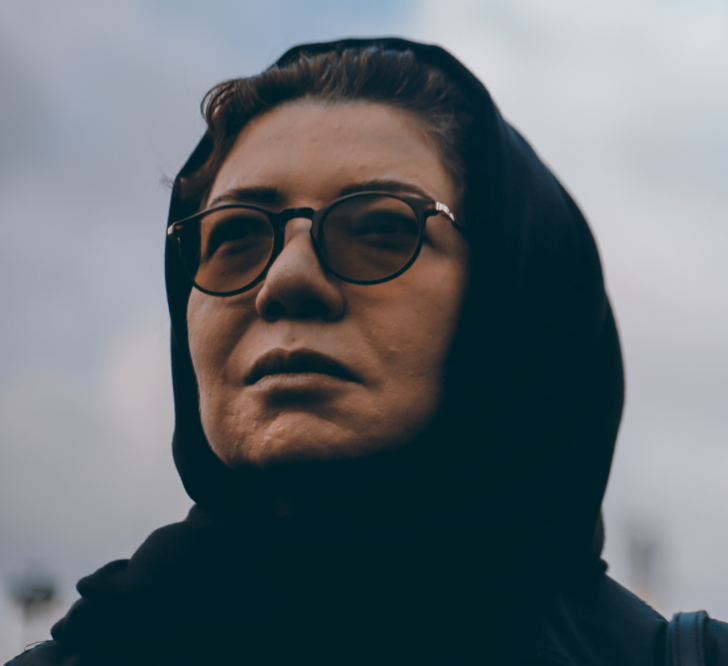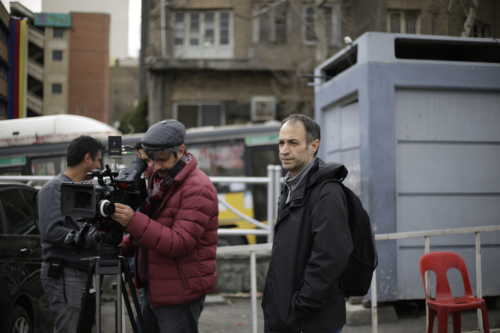
Regienotizen zu „The Blue Bed“
Negar arbeitet seit längerem für eine temporäre Heiratsagentur. Mit ihrer neuen Kundschaft wird sie jedoch vor eine unerwartete Herausforderung gestellt. Zahra ist eine Frau und sucht Hilfe. Negar hatte noch nie eine weibliche Klientin und ist misstrauisch. Was erhofft sich Zahra von ihr?

„The form of the film is overshadowed by the content and is based on the secrecy of characters, and the conservative oriental shame in dealing with the taboo of sex. The mise-en-scene is based on Zahra’s point of view.“

„The idea of this film first crossed the writer and director’s mind when he found out about the family issues of one of his acquaintances who had an autistic child. Many families fail to keep their autistic sons who have reached adolescence, sending them to sanitoriums and medical centers, because they cannot find a way to satisfy their sexual desire.“

„In a scene of „The Blue Bed“, a young lady is waiting for a taxi; the other cars stop and honk the horns for her. We realized that this is unclear for the foreign audience the reason for the honks. In Iran, prostitution is illegal and subject to heavy punishment. Although the illegalization didn’t help for prostitution to be disappeared, it just turned that to a dark and more complicated business. The prostitutes, often after dawn, with a normal outfit and makeup walk in the streets and pretend that they are waiting for a taxi; this is a known way of finding customers. Usually recognizing a hooker from a real pedestrian waiting for a cab is not easy, so the men who are looking for a prostitute try their chance by honking for every standing lady by the street; especially at night.“
